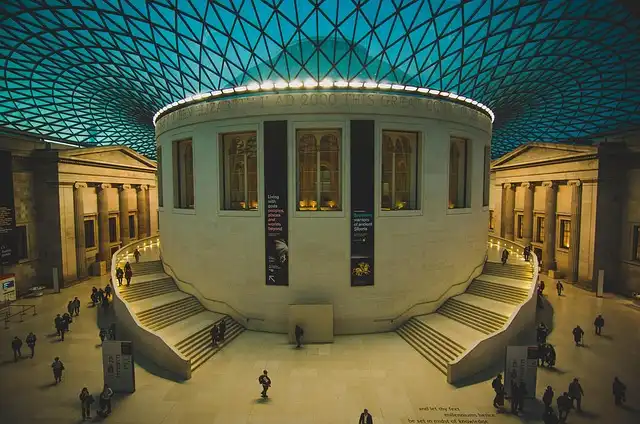Kunsthalle Bern: Reframing Art & Colonial History

Kunsthalle Bern, under Iliana Fokianaki, confronts its Eurocentric past. Exhibitions by Mahama, Edwards & Mekondjo explore themes of colonialism, racial industrialism, and global perspectives.
Shortly after Fokianaki’s visit in late 2023, new fire laws prompted the Kunsthalle to add a 2nd entryway at the back of the building. The institution’s first significant renovation in more than a century presented “a fantastic possibility to reframe a lot of points backstage”, Fokianaki says, consisting of pay for team and artists, enhanced audience interaction and a new vision for the event programme.
Reconfiguring Exhibition-Making
If Szeemann put the Kunsthalle Bern on the map as a hotbed of progressive testing in the 1960s, Fokianaki intends to reconfigure its exhibition-making for the politically billed present. She defines the jobs of Mahama, Edwards and Mekondjo as expressions of the “Plantationocene”, a version for understanding the climate situation in connection with “racial industrialism”. Other conceptually driven exhibition tasks are on the way from the musicians Sung Tieu, Gala Porras-Kim and Daniela Ortiz.
Mahama’s Monumental Intervention
The Kunsthalle lately experienced again the moment with an additional monumental treatment, this time by Ibrahim Mahama.” The background of the Kunsthalle has actually been a really Eurocentric, extremely white background,” she states. Each iteration is different, with Bern bringing in “contributions” from the musician’s friends and influences to offer “a flavour of all the things that orbit around Mel”, Fokianaki states, from American histories of enslavement and partition to the Civil Legal rights motion, to his later engagement with Africa. The Kunsthalle’s new cycle of events kicks off a likewise involved curatorial program in Bern, dealing with questions of ecological disaster, equity, work civil liberties and the politics of treatment over the following 2 years.
Edwards’s Retrospective
Edwards’s retrospective opened up in 2014 at the Fridericianum in Kassel and will certainly travel to the Palais de Tokyo in Paris in 2026. Each version is different, with Bern generating “contributions” from the musician’s pals and influences to provide “a flavour of all the important things that orbit around Mel”, Fokianaki states, from American backgrounds of enslavement and partition to the Civil liberty movement, to his later engagement with Africa. In addition to the well-known Lynch Fragments and other sculptures bonded out of barbed cable and chains, the show includes lively service paper, in which Edwards used metal scraps as patterns for spray-paint and watercolour.
“The history of the Kunsthalle has been a very Eurocentric, extremely white history,” she states. Fokianaki points to the National Gallery Zurich, which last fall presented a significant exhibit exploring Switzerland’s colonial past.
Mekondjo’s Exploration of Erasure
Mekondjo’s research study explored the erasure of genealogical cultural methods in Africa– one more type of extraction functioned by European colonialism. Her brand-new installment, created in discussion with the Museum of Ethnography in the neighboring Swiss community of Neuchâtel, recommendations ritual objects known as “crafted children” that Western promoters, visitors and ethnographers removed from Namibia during the colonial era. Family members would fashion such dolls for young girls to augur the birth of their very own youngsters.
A Guide for the Future
Mahama’s installment, which recalled to Szeemann’s insurgent curating and the lesser-known colonial history of Swiss cacao removal in Ghana, was a guide for the future direction of the Kunsthalle Bern. The hemp covering was a symbolic “cocoon” that the Kunsthalle shed in very early June, re-emerging last week from a year-long change spearheaded by the museum’s director, iLiana Fokianaki.
The Kunsthalle lately experienced again the minute with an additional significant intervention, this moment by Ibrahim Mahama. In place of plastic, the Ghanaian artist enfolded the structure in a material evocative of international work and trade– hemp sacks made in Southeast Asia and imported to Ghana for the transportation of cocoa beans to European markets. The Swiss delicious chocolate industry specifically has expanded abundant from the harvest of West African farmers, that supply a substantial section of the globe’s raw cacao.
“Various perspectives that are not Eurocentric, yet are of the globe, of the global bulk, are interesting to us,” Fokianaki claims. “I would such as people to think of the Kunsthalle as an area that reflects the essential and difficult concerns of our times, and we can use that as opposed to just a stunning exhibition.”
New Cycle of Exhibitions
If Szeemann put the Kunsthalle Bern on the map as a hotbed of avant-garde testing in the 1960s, Fokianaki desires to reconfigure its exhibition-making for the politically billed present.
After commissioning “the first motion” of adjustment from Mahama, the institution resumed with a trio of shows by Black artists. Along with solo exhibitions for the octogenarian US carver Melvin Edwards and the young Namibian artist Tuli Mekondjo, Tschabalala Self exists an installment of her signature painted and collaged Black numbers.
Christo and Jeanne‑Claude
In 1968, Christo and Jeanne‑Claude draped 26,000 sq. feet of polyethylene over the Neo-Classical façade of the Kunsthalle Bern– their very first covering of an entire structure. Appointed by the extreme Swiss curator Harald Szeemann for a group program of ecological works, Covered Kunsthalle might have only lasted a week but it pushed the borders of what art could be.
Mekondjo’s work “was really knowingly paired” with Edwards’s sculptural explorations of African American identity, Fokianaki says. “Naturally, all these things adjoin.” Prior To Bern, Fokianaki was the founding supervisor of State of Principle in Athens, an independent art institution with a strong social-justice goal. The Kunsthalle’s new cycle of exhibitions begins an in a similar way engaged curatorial program in Bern, tackling concerns of ecological disaster, equity, labour legal rights and the national politics of treatment over the following two years.
1 art exhibition2 champion Black artists
3 colonial history
4 Eurocentric
5 Iliana Fokianaki
6 Kunsthalle Bern
« Murujuga Rock Art: UNESCO Listing Debate & Gas Plant ExpansionNewsom, Trump, and the #Resistance: A Political Pivot? »
